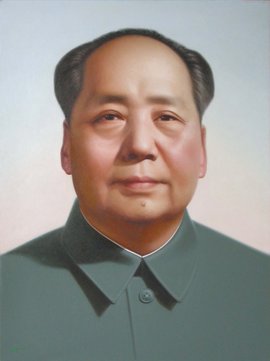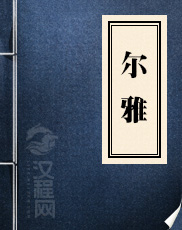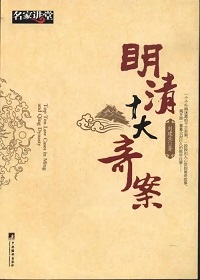THE afternoon of the following day, Quentin went to the Calle del Sol to see his grandfather, according to his promise to Rafaela. There was a carriage at the door. Juan, with his hat in his hand, was talking to an elegant lady with black eyes.
“Do you mean to say I cannot go in?” said she unpleasantly.
“The Señoritas have told me that they were not at home to any one.”
“Not even to me?”
“Those are my orders.”
“Very well. I shall wait until my husband comes.”
“It will be useless,” said Juan emphatically.
“Because the Señor Marqués told me that he does not wish to see you.”
The woman made no reply.
“Home!” she said to the coachman angrily.
Quentin went up to Juan.
“What’s up? May I not come in?” he asked.
“You may, of course,” replied the gardener, “but not that designing hussy.”
“Who is she?”
“The Countess. After saying all sorts of monstrous[223] things about Rafaela and her grandfather, the hussy comes here to boast of her charity.”
“How is the Señor Marqués?”
“Very bad.”
“Has his illness been aggravated2, or is it following its natural course?”
“It has been aggravated.... And meanwhile, the Count—do you know what he’s doing? Well, he’s selling everything he can lay his hands on. He’s even sold the lead pipes and the paving stones in the stable, which he tore up with his own hands. I tell you it’s a shame....”
“Why don’t they stop him?”
“Who is there to do it? It’s very sad. While the master is in bed, the second-hand3 men come and cart everything away. They’ve removed tapestries4, bronzes, the gilt5 writing-desks that were in the hall, the sideboard, the dressing6 tables ... and that shrewd female, who knows all about the business, wants to come and take part in the robbery. One can say nothing to the Count; but to that wicked woman, it’s different. If you could see her! I don’t see how she dares look at me after what has happened between us.”
“Between whom? You and her?”
“Sí, Señor. Have they never told you?”
“No.”
“Well, you know I have a son, who, though not so much to look at now, was several years ago a very beautiful child, whiter than snow, and with a pair of cheeks just bursting with blood. Moreover, he was strong, healthy, and very innocent. Well, pretty soon the lad began to get pale, and thin, and black circles appeared under his eyes. His mother and I wondered what was[224] the matter with him, and what his trouble was. But it was useless; we were unable to understand what was going on, until one night the coachman saw him climbing about the roof. The man hid himself and found out everything. At that time the Countess lived here with her husband, and my son was on his way to her. When I told the Marquis what was happening, he went and loaded a pistol, and was for shooting his daughter-in-law. But she, the shrewd thing, came to me and said: ‘If you need anything for your son, let me know.’—‘Señora,’ I answered, ‘you are a very vicious woman, and my son shall never see you again.’”
“Whom is she living with now?”
“With Periquito Gálvez.”
“Who is he?”
“A rich farmer.”
“Young?”
“No; he’s over fifty. But she would take to any one. When he came to an understanding with her, they say that one day he found one of the Countess’ garters, which had a little sign on it that read:
Intrépido es amor;
de todo sale vencedor.
(Love is fearless; it conquers all obstacles.)
“Periquito had a pair of garters made just like it, with letters of diamonds and pearls, which he gave to her.”
“How magnificent!”
“It certainly was.”
Quentin left Juan, and went up to see the sick man.
In a drawing-room near the bedroom, Rafaela and Remedios were talking to a thin, graceful7, very polished-[225]looking gentleman. It was El Pollo Real, brother of the Marquis and of Señora Patrocinio. From time to time Colmenares, the hunchback, came out of the bedroom red-eyed, only to go back again immediately.
“I am going to pray at the hermitage of La Fuensanta,” said Remedios to Quentin. “Do you wish to come with me?”
Remedios, her young maid-servant, and Quentin left the house as evening fell.
The two women said their prayers, and then Remedios and Quentin returned chatting from the hermitage. Remedios told Quentin that some of her stepmother’s invectives had reached Rafaela’s ears, and Quentin promised the girl that he would silence the Countess. He thought of dedicating a few stings to her in La Víbora which might mortify8 her. Then Remedios spoke9 of her brother-in-law. She felt a strong antipathy10 for him, and, while realizing that he was good and amiable11, she could not bear him.
To prolong the conversation, they took the longest way home.
It was an autumn day with a deep blue sky.
In the west, long, narrow clouds tinged12 with red, floated one above the other in several strata13. They walked by the Church of San Lorenzo. The square tower rose before them with its angel figure on the point of the roof; the great rose-window, lit by the rosy14 hue15 of late afternoon, seemed some ethereal, incorporeal16 thing, and above the rosette, a white figure of a saint stood out against a vaulted18 niche19.
They returned by the Calle de Santa María de Gracia. Remedios read the signs on the stores as she passed them, and the names of the streets. One of these was[226] called Puchinelas, another, Juan Palo, another El Verdugo....
A lot of questions suggested themselves to the child, to which Quentin did not know how to reply.
They went along the Calle de Santa María. Overhead, the rosy sky showed between the two broken lines of roofs; the water pipes stuck into the air from the eaves like the gargoyles20 and cantilevers21 of a Gothic church; the houses were bathed in a mysterious light....
Against the white walls of an ancient convent with tall Venetian blinds, the scarlet22 splendour of the sky quivered gently; and in the distance, at the end of the street, the hoary23 tower of a church, as it received the last rays of the sun, shone like a red-hot coal.
When they reached the house, the sky was already beginning to lose its blood-red colour; a veil of pale yellow opal invaded the whole celestial24 vault17; toward the west it was green, to the east, it was blue, an intense blue, with great, purple bands....





